
Journal of Urban Ethnology
Scope & Guideline
Exploring the Urban Experience Through Ethnographic Insights
Introduction
Aims and Scopes
- Urban Cultural Heritage:
Examines how cultural heritage shapes urban identities and spaces, focusing on local traditions, festivals, and historical narratives that influence contemporary urban life. - Ethnographic Approaches to Urban Studies:
Utilizes qualitative research methods, particularly ethnography, autoethnography, and participant observation, to explore urban experiences and social dynamics. - Community Engagement and Resilience:
Investigates how communities respond to urban challenges, including issues of accessibility, inclusivity, and resilience against socio-political changes. - Architecture and Urban Design:
Analyzes the role of architecture in shaping urban experiences, including the impact of design on community interactions and cultural expressions. - Socio-Political Dynamics in Urban Settings:
Explores the intersection of culture, politics, and urban life, focusing on protests, social movements, and the implications of urban policies on local communities.
Trending and Emerging
- Impact of Globalization on Local Cultures:
There is a growing focus on how globalization influences urban cultures, particularly the tensions between local traditions and global cultural flows. - Urban Protests and Public Space:
An increased examination of the role of public spaces in protests and social movements, reflecting contemporary socio-political issues and community responses to urban governance. - Digital Communication and Urban Experience:
Research on the intersection of digital technology and urban life is emerging, exploring how digital communication reshapes cultural traditions and experiences in urban settings. - Environmental and Social Sustainability:
A rising interest in how urban communities engage with sustainability practices, addressing both environmental concerns and social equity in urban development. - Art and Urban Identity:
There is a trend towards exploring the role of art and creative expressions in shaping urban identities and fostering community ties, particularly through public art and cultural festivals.
Declining or Waning
- Traditional Rural-Urban Transitions:
Research on the migration from rural to urban settings and its cultural implications has decreased, possibly due to the increasing focus on urbanization processes rather than the rural context. - Historical Analysis of Urban Spaces:
While historical perspectives are still relevant, there seems to be a waning emphasis on purely historical analyses without contemporary connections to current urban challenges. - Cultural Studies of Marginalized Communities:
Although important, studies focusing exclusively on marginalized communities in urban settings appear less frequently, as the journal seems to be integrating these themes more broadly into discussions of urban resilience and community engagement.
Similar Journals
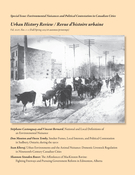
URBAN HISTORY REVIEW-REVUE D HISTOIRE URBAINE
Connecting Past and Present in Urban StudiesURBAN HISTORY REVIEW - REVUE D'HISTOIRE URBAINE, published by University of Toronto Press Inc., serves as a vital scholarly resource in the intersection of history and urban studies, focusing on the evolution of urban life and spaces. Established in 1978 and publishing continuously until 2012, and then resuming in 2014, this journal reflects on urban historical perspectives and contemporary urban issues, making significant contributions to both fields. With an impressive Q2 ranking in History and a Q4 ranking in Urban Studies as of 2023, the journal is positioned to attract a diverse readership of researchers, practitioners, and students alike. While currently not an open-access journal, it maintains a reputation for rigorous scholarship, encouraging the exploration of urban narratives that shape our understanding of cities today. For those invested in the past's lessons for future urban development, this journal is indispensable in navigating the complexities of urban history.
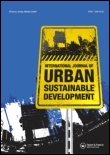
International Journal of Urban Sustainable Development
Exploring solutions for resilient urban environments.The International Journal of Urban Sustainable Development is a premier peer-reviewed journal published by Taylor & Francis Ltd, dedicated to advancing knowledge in the field of urban sustainability. With an ISSN of 1946-3138 and an E-ISSN of 1946-3146, this journal has gained recognition for its high-quality research, attaining Q1 status in multiple categories including Development, Geography, Planning and Development, and Urban Studies, per the 2023 category quartiles. Open Access since 2022, the journal ensures that groundbreaking research is widely accessible to scholars, practitioners, and policy-makers alike, enhancing its reach and impact. Operating from the United Kingdom, it focuses on a diverse array of topics related to urban environments and sustainable practices, supporting innovation and policy development. As a result, the journal holds significant placements in Scopus rankings, notably ranking #62 in Urban Studies, underscoring its pivotal role in shaping the future of sustainable urban development globally.
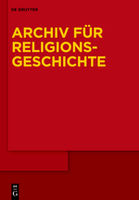
Archiv fur Religionsgeschichte
Exploring the Depths of Religious NarrativesArchiv für Religionsgeschichte is an esteemed academic journal dedicated to the exploration and scholarly analysis of religious history, published by Walter de Gruyter GmbH in Germany. Renowned for its critical contributions to Religious Studies, this journal, with an ISSN of 1436-3038, represents a pivotal resource for researchers, professionals, and students aiming to deepen their understanding of the historical narratives and contexts shaping contemporary religious practices and beliefs. As evidenced by its rankings in Scopus, where it occupies the 285th position out of 644 in the Arts and Humanities category, it has secured a respectable Q3 quartile status in 2023, reflecting its influence and reach within the discipline. While the journal does not currently offer open access options, it remains a vital publication within the field, welcoming innovative research and interdisciplinary approaches that address the complexities of religious history from various cultural perspectives.

Cuadernos de Vivienda y Urbanismo
Innovating Solutions for Urban ChallengesCuadernos de Vivienda y Urbanismo, published by the Pontificia Universidad Javeriana, Facultad de Arquitectura y Diseño, serves as a vital platform for researchers and practitioners in the fields of urban studies and planning. With a focus on the intricate relationships between housing, urban development, and social dynamics, this journal aims to foster interdisciplinary discourse and present innovative research that addresses contemporary urban challenges. Although its coverage on Scopus has been discontinued from 2012 to 2019, it continues to be an informative resource for understanding urban phenomena, evidenced by its rankings in the 24th percentile in Urban Studies and the 10th percentile in Geography, Planning and Development. Scholars and professionals are encouraged to explore the rich repository of articles that reflect both local and global contexts, providing insights that inform policy and practice in urban environments.

Urbano
Shaping Tomorrow's Cities Through Innovative ResearchUrbano is a distinguished academic journal published by UNIV BIO-BIO, DEPT PLANIFICACION & DISENO in Chile, specializing in Urban Studies. With the ISSN 0717-3997 and E-ISSN 0718-3607, it has been committed to open-access publishing since 2000, aiming to disseminate vital research and insights that contribute to the dynamic field of urban planning and design. The journal's impressive trajectory includes acceptance into Scopus, featuring a 2023 ranking of #162 out of 279 in the Urban Studies category, placing it in the 42nd percentile. Urbano serves as a platform for innovative ideas and interdisciplinary approaches, inviting researchers, practitioners, and students to engage with high-quality content from 2016 to 2024. By addressing contemporary urban challenges, it not only enriches academic discourse but also actively supports the development of sustainable urban environments across Latin America and beyond.
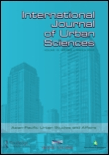
INTERNATIONAL JOURNAL OF URBAN SCIENCES
Navigating the Complexities of Urban EnvironmentsThe INTERNATIONAL JOURNAL OF URBAN SCIENCES, published by ROUTLEDGE JOURNALS, TAYLOR & FRANCIS LTD in the United Kingdom, stands as a leading academic forum for innovative research in the fields of urban studies and geography. With its ISSN 1226-5934 and E-ISSN 2161-6779, this prestigious journal has been continuously converging insightful findings since 1998, providing a valuable platform for scholars and professionals to disseminate their work through both rigorous peer review and an influential global reach. Recognized within the top quartiles (Q1) for both Geography, Planning and Development and Urban Studies according to the 2023 metrics, it holds impressive Scopus ranks, being positioned at #36/279 (87th percentile) in Urban Studies. By encouraging interdisciplinary dialogue and addressing contemporary urban challenges, the journal aspires to inform policy, practice, and education within rapidly changing urban environments. Researchers, professionals, and students alike will find a wealth of relevant knowledge and cutting-edge research that drives the discourse on sustainable urban development and planning.
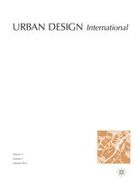
Urban Design International
Elevating urban design practices for a sustainable tomorrow.Urban Design International, published by Palgrave Macmillan Ltd, stands as a pivotal journal in the fields of Urban Studies and Geography, Planning and Development. Since its inception in 1996, this UK-based journal has become a leading platform for innovative research and discourse, maintaining a Q1 classification in Urban Studies and a Q2 ranking in Geography, Planning and Development as of 2023. With an impressive Scopus ranking of 48 out of 279 in Urban Studies, the journal's contributions are recognized globally, evidenced by its 82nd percentile standing. While currently not an open-access publication, it provides a vital resource for academics, urban planners, and policymakers engaging with the complexities of urban environments. With an aim to foster interdisciplinary collaboration and critical analysis of urban design practices, Urban Design International is committed to pushing the boundaries of knowledge in sustainable urban development and design.

ACE-Architecture City and Environment
Fostering Collaboration for Sustainable Urban FuturesACE-Architecture City and Environment, published by Universitat Politècnica de Catalunya in Spain, serves as an essential repository for innovative research and insights that intersect the fields of architecture, urban studies, and environmental planning. Since its establishment as an Open Access journal in 2006, it has facilitated widespread accessibility to scholarly work, fostering a collaborative and inclusive academic community. The journal has consistently maintained a prominent standing within its field, reflected in its 2023 Quartile rankings—, Q3 in Geography, Planning and Development, and Q2 in Urban Studies. With a publication horizon extending from 2011 to 2024 and an impressive Scopus ranking among peers, it offers a comprehensive platform for researchers to disseminate their findings and engage with contemporary challenges in urban environments. ACE is pivotal for professionals and students alike, striving to shape the future of sustainable architecture and urban planning through rigorous scholarship.

LOTUS INTERNATIONAL
Bridging Artistry and Architecture for a Vibrant FutureLOTUS INTERNATIONAL is a distinguished journal published by EDITORIALE LOTUS, focusing on the dynamic fields of Architecture and Visual Arts and Performing Arts. With its ISSN 1124-9064, this scholarly periodical has been a platform for innovative research and discourse since its inception in 2002, resuming publication in 2021 after a brief hiatus. Based in the cultural hub of Milan, Italy, LOTUS INTERNATIONAL aims to bridge theoretical frameworks and practical applications, thereby fostering a deeper understanding of creative practices and their implications in modern society. As a Q4 ranked journal in its respective categories for 2023, it provides a unique opportunity for researchers and professionals to contribute to an evolving dialogue, even at the foundational percentile levels within its Scopus rankings. Although not an open-access journal, LOTUS INTERNATIONAL remains committed to disseminating valuable insights and advancing knowledge in the creative disciplines. With an accessible format, it invites a diverse audience, including students, to engage with emerging concepts that shape the future of art and architecture.
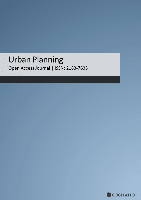
Urban Planning
Advancing sustainable cities through innovative research.Urban Planning is a leading academic journal published by COGITATIO PRESS, devoted to advancing the field of urban studies through rigorous research and innovative practice. Established as an Open Access journal in 2016, it offers a platform for scholars and practitioners alike to disseminate knowledge on urban development, spatial planning, and community engagement. With an impressive ranking in the Q1 category for Urban Studies and a notable Scopus rank of #71 out of 279, it reflects the journal's commitment to excellence and influence within its discipline. Based in Lisbon, Portugal, and dedicated to a global audience, Urban Planning encourages interdisciplinary collaboration and seeks to address the pressing challenges faced by urban areas, making it an essential resource for researchers, professionals, and students passionate about shaping sustainable cities. The journal, which contributes to the academic discourse through a robust review process and encourages contributions that engage diverse voices, is set to converge its insights from 2016 to 2025, solidifying its role as a pivotal resource in the urban studies field.